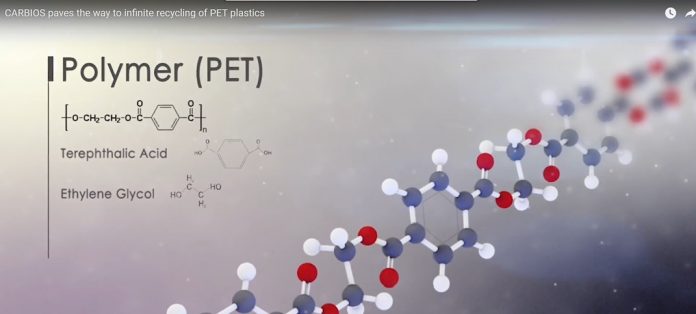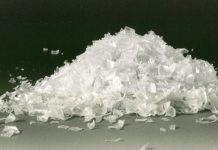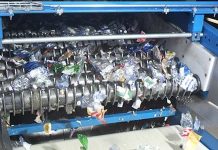Carbios, a pioneer company in the field of bio-plasturgy, announces a major milestone in the optimization of its bio-recycling process of post-consumer PET plastic bottles, making it possible to strengthen its economic competitiveness and accelerate its scaling up towards the industrial demonstration stage.
Previously, the company announced that it had discovered a particularly well-suited enzyme to degrade PET plastics into their original monomers: PTA (terephthalic acid) and MEG (mono ethylene glycol). Following these results, work has been undertaken to optimize the enzyme used in Carbios‘ biorecycling process, with the support of the teams from Toulouse White Biotechnology (TWB), and in particular the Engineering Laboratory of Biological Systems and Processes (LISBP).
Key step that reinforces economic potential
A molecular modelling study has been carried out to analyze the relations between the 3D structure of the enzyme and its efficiency. This has made it possible to set targets enabling to improve performance and achieve a conversion rate that only Carbios can claim today. Thus, the time of hydrolysis has been divided by three, 97 per cent conversion being obtained after 24 hours of reaction. Such a result enables to optimize the profitability of the process and significantly increase the flows of PET waste that can be treated enzymatically.
Alain Marty, Scientific Director of Carbios commented: “Today, we are the first in the world to achieve such a high level of performance in the biological recycling of PET plastics. Our work represents a major move forward that will enable the entire plastics industry to engage in a responsible transition towards circular economy.” Jean-Claude Lumaret, CEO of Carbios adds: “This is undoubtedly a key step that reinforces the economic potential of our bio-recycling process which is applicable to all PET plastics, whether they are coloured, opaque or complex. We are already working with TechnipFMC and other leading industrial and academic partners to lead this year’s pilot stage of our technology. Given our progress, we decided to accelerate these developments and initiate the industrial demonstration stage in 2019 with the set-up of a 10,000 metric tonnes plant that will produce the first volumes of virgin PET from our technology by mid-2021.”
Solutions to the environmental and sustainable development
Carbios is a green chemistry company whose innovations provide solutions to the environmental and sustainable development issues that manufacturers currently face. Since its founding in 2011, the company has developed two industrial-scale biological processes for the biological breakdown and recycling of polymers. These unique innovations help optimize the performance and life cycle of plastics and textiles by capitalizing on the properties of specially selected enzymes.
The company´s economic growth model is based on the industrial roll-out and sale of its products, enzymes, technologies and biological processes through direct licence agreements or joint ventures, to major players in the fields to whom they would most benefit. To that end, Carbios founded the joint venture Cariolice in 2016, in partnership with Limagrain Céréales Ingrédients and the fund SPI, run by Bpifrance. This company, in which Carbios holds a controlling share, will market the first technology licensed by Carbios by producing enzyme pellets used in the production of biodegradable and bio-sourced plastics. Since its founding, the company has been backed by Truffle Capital, a European investment capital player. Carbios qualifies as an “Innovative Company” according to Bpifrance, which makes the company’s shares eligible for inclusion in innovation-focused mutual funds (FCPIs). The company is eligible for the PEA-PME, a government program allowing French residents investing in SMEs to benefit from income tax rebates.
More information: www.carbios.fr
Source: Carbios







